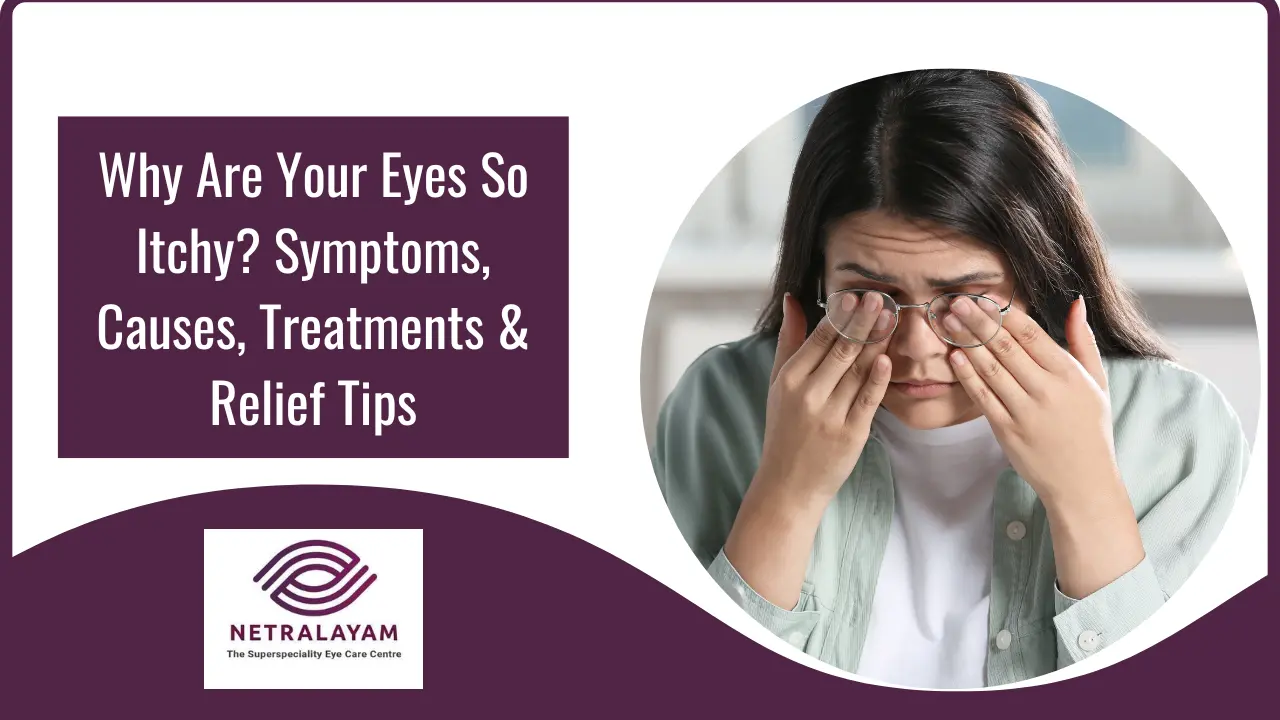Itchy eyes are a common yet bothersome issue that most people face at some point in their lives. While occasional irritation may seem trivial, persistent or severe itchiness can significantly affect your daily routine, making it hard to concentrate, work, or even enjoy leisure activities. This condition can stem from various causes, including allergies, dryness, environmental irritants, or even underlying health conditions.
Understanding the triggers behind itchy eyes is crucial because it not only helps in identifying the appropriate treatment but also prevents recurrence. For example, managing itchy eyes caused by allergies will require a different approach compared to those caused by prolonged screen time or an infection. Moreover, itchy eyes are often accompanied by other symptoms like redness, swelling, or watering, making it important to treat the condition holistically rather than addressing just the itchiness.
Let's explore the common causes, symptoms, proven treatments for itchy eyes, and practical tips to manage this bothersome condition.
Recognizing the Symptoms of Itchy Eyes
Itchy eyes rarely occur in isolation and are often accompanied by additional symptoms. These include redness and swelling around the eyes, persistent irritation, and a constant urge to rub. Many individuals also experience watering or discharge, sometimes sticky or excessive. Sensitivity to light is another frequent complaint, making it challenging to stay in bright environments. Some people describe a gritty or dry sensation in their eyes, akin to having sand trapped in them. Recognizing these symptoms can help pinpoint the cause and direct you toward appropriate treatments.
Common Causes of Itchy Eyes
Itchy eyes can stem from several factors, each requiring a different approach to management:
- Allergies: One of the most prevalent causes of itchy eyes is allergies. Seasonal triggers like pollen often lead to discomfort, especially during spring and fall. Indoor allergens such as dust and pet dander can be just as problematic, causing chronic itchiness for those frequently exposed. Other irritants, like smoke or certain cosmetics, may also provoke allergic reactions. According to the Centers for Disease Control and Prevention (CDC), 25.7% of adults had a seasonal allergy, which includes hay fever, allergic rhinitis, and allergic conjunctivitis, all of which can cause sneezing, cough, runny nose, and itchy eyes
- Dry Eyes: Dry eyes occur when your tear glands fail to produce enough moisture or the quality of tears is insufficient. This can lead to irritation, itchiness, and a persistent feeling of dryness. Dry eyes are especially common in older adults and those who spend long hours in air-conditioned or heated environments.
- Infections: Infections, particularly conjunctivitis (commonly known as pink eye), are another culprit. This condition can be bacterial, viral, or allergic and is characterized by redness, discharge, and intense itching. While pink eye is often highly contagious, it is treatable properly.
- Environmental Factors: External irritants like pollution, smoke, and exposure to harsh chemicals can inflame your eyes and lead to itching. These factors are especially relevant for individuals living in urban areas or working in environments with airborne irritants.
- Eye Strain: With the increasing reliance on digital devices, eye strain has become a frequent cause of itchy and uncomfortable eyes. Prolonged screen time, inadequate lighting, or overuse of the eyes during reading can lead to dryness and irritation.
Effective Treatments for Itchy Eyes
Treating itchy eyes effectively often requires addressing the underlying cause. Here are some tried-and-true methods to alleviate discomfort:
- Over-the-Counter Solutions: Many cases of itchy eyes can be managed with over-the-counter (OTC) remedies. Antihistamine eye drops are excellent for allergy-related itching while lubricating eye drops provide much-needed moisture for dry eyes. Decongestant drops can reduce redness and swelling, offering quick relief.
- Prescription Medications: For more severe symptoms, prescription treatments may be necessary. These include anti-inflammatory eye drops, which help manage chronic irritation, and antibiotics or antivirals for bacterial or viral infections. Consulting an eye specialist is crucial if your symptoms persist despite OTC treatments.
- Home Remedies: Home remedies can provide additional relief. A cold compress applied to closed eyes can reduce swelling and soothe eye irritation. Cooled chamomile or green tea bags can be placed on the eyes for a natural approach to relieve discomfort. These remedies are simple yet effective for mild cases.
- Allergy Management: Preventing allergy-related itchy eyes often involves minimizing exposure to triggers. Keep windows closed during high-pollen seasons and regularly clean your living space to reduce dust and pet dander. Using an air purifier can further help maintain allergen-free indoor air.
Managing Itchy and Watery Eyes
Itchy eyes are often accompanied by excessive watering, making the condition bothersome. To manage this:
- Avoid rubbing your eyes, as this can exacerbate irritation and increase the risk of infection.
- Keep your eyes clean by gently wiping them with a soft, damp cloth to remove debris or discharge.
- Use artificial tears to flush out irritants and hydrate your eyes throughout the day.
When to Seek Professional Help
While many cases of itchy eyes can be treated at home, sure warning signs indicate the need for professional care. If you experience severe or persistent pain, noticeable changes in vision, or symptoms that fail to improve with OTC treatments, consult an eye specialist. Timely medical intervention can address severe conditions and prevent long-term damage.Relieving the Discomfort of Itchy Eyes
Relieving the Discomfort of Itchy Eyes
Although itchy eyes are a common problem, they can be managed effectively with the right approach. Understanding the symptoms, identifying the causes, and following appropriate treatments can alleviate discomfort and protect your eye health. However, if symptoms persist or worsen, seeking professional care is essential.
Don't let itchy eyes hold you back. Schedule a consultation with a specialist at Netralayam today and take the first step toward lasting relief!

